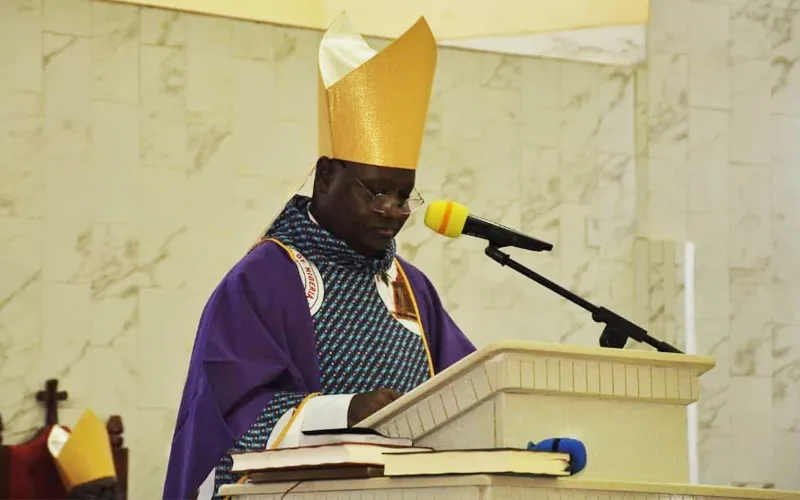Abuja, 08 March, 2022 / 8:50 pm (ACI Africa).
The insensitivity of people of God to evil in Nigeria has heightened corruption to the extent that solutions to most challenges are sought through graft, a Catholic Archbishop in the West African country has said.
In his homily during the opening of the 2022 Catholic Bishops’ Conference of Nigeria (CBCN) Plenary Assembly at St Gabriel’s Chaplaincy in Nigeria’s Abuja Archdiocese, Archbishop Ignatius Ayau Kaigama said that politics in the country is tainted with dishonest practices.
“The declining sense of sin and guilt has elevated corruption almost to a cultural status, so that even when our leaders are asked to respond to the threats of terrorism, combat a pandemic, build roads, houses, bridges, corruption is the arithmetical determinant,” Archbishop Kaigama said during the Sunday, March 6 homily.
The Nigerian Archbishop said that young people in the country have learnt bad ways of corruption from elders. He called for attitude change among different groups including professionals, leaders, the youth, and children.
He said that the instances of young people in the country in search of services such as getting recruited into security bodies and what they go through before getting the services are saddening.







